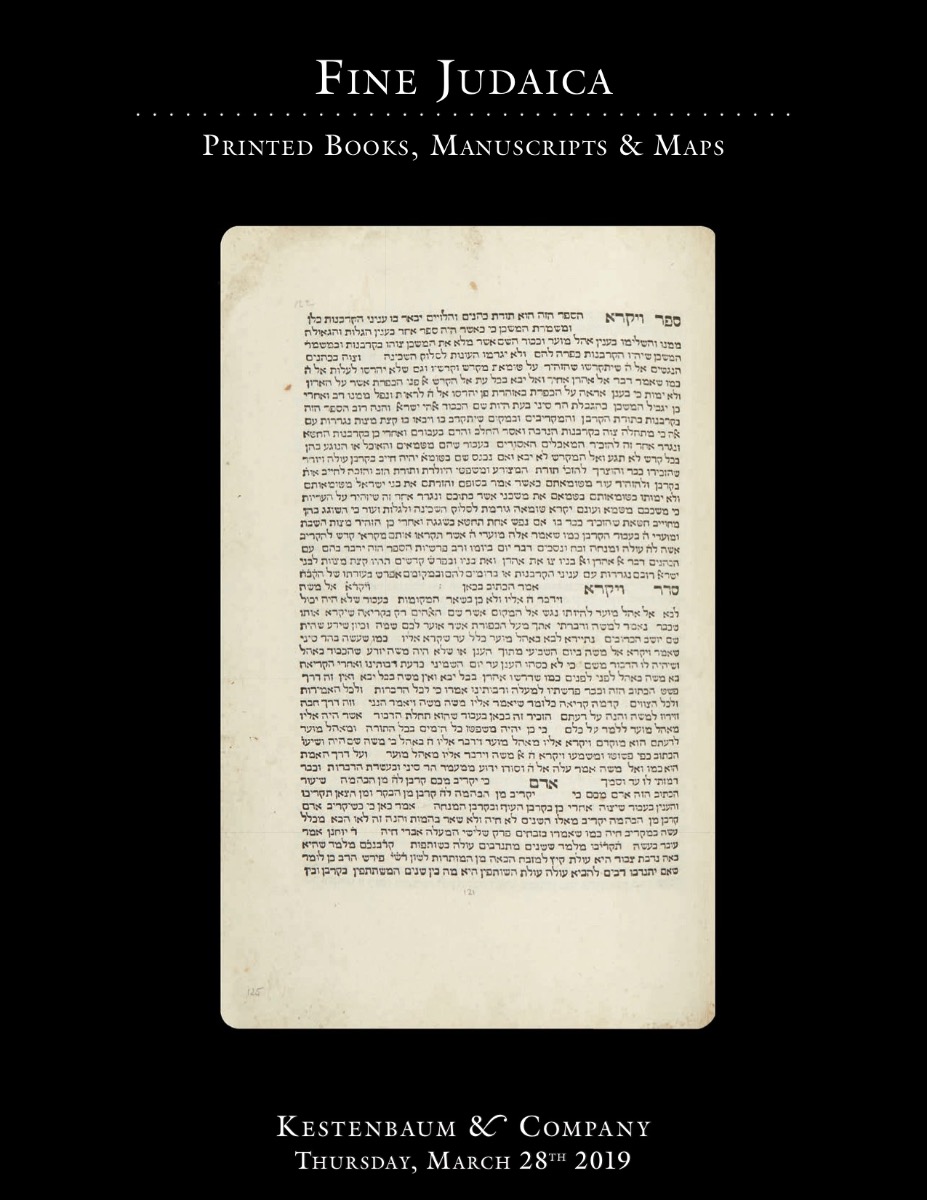Chovoth HaLevavoth [ethics and pietism]. Translated into Hebrew by Judah ibn Tibbon.

AUCTION 80 |
Thursday, March 28th,
2019 at 1:00 PM
The Valmadonna Trust Library: Further Selections from the Historic Collection. * Hebrew Printing in America. * Graphic & Ceremonial Art
Lot 37
BACHIAH BEN JOSEPH IBN PAQUDA
Chovoth HaLevavoth [ethics and pietism]. Translated into Hebrew by Judah ibn Tibbon.
Venice: Daniel Bomberg 1548
Est: $3,000 - $4,000
In composing this fundamental text of Jewish thought, R. Bachiah (Saragossa, 11th century) attempted to systematize the ethical teachings of Judaism. He writes in his introduction: “The Torah is divided into two parts: The duties to be performed by the organs (chovoth ha’evarim) and the duties of the heart (chovoth ha’lev) - namely those belonging to human conscience. The majority of the rabbis pay attention only to the outward observance of the Law, without regard to the ideas and sentiments embodied in the 613 laws of Moses. Even the pious are often prompted only by selfish and worldly motives.” With this motivation in mind, Chovoth HeLevavoth undertakes to outline moral traits and philosophical concepts, such as the Unity of God, humility and repentance.
Originally written in Judeo-Arabic (“Al Hidayah ila Faraid al-Qulub”) the treatise was translated into Hebrew in the 12th century by R. Judah ibn Tibbon so making it accessible to a broader Jewish audience. This translation guaranteed the work’s popularity in Europe in later centuries. Indeed, the Nodah BeYehudah (1713-93) instituted daily in-depth study of the work as one of his Tikkunim to rectify acts of promiscuity (see his responsum Nodah BeYehudah 1:35).
